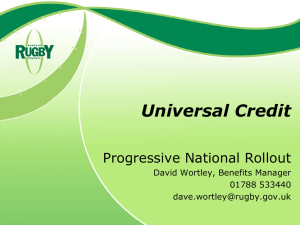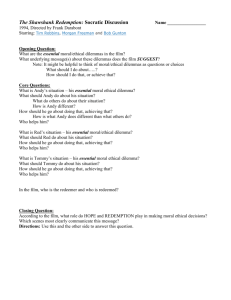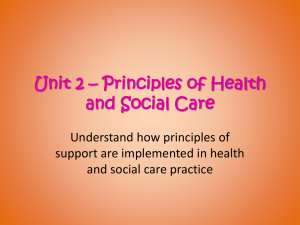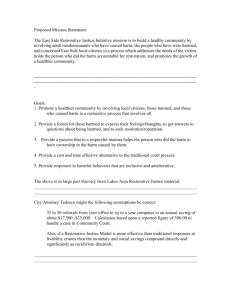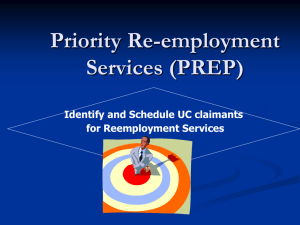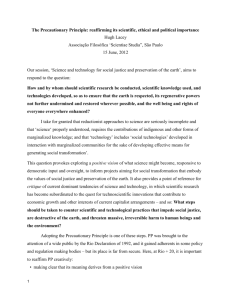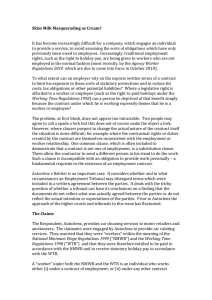a checklist for moral decision making
advertisement
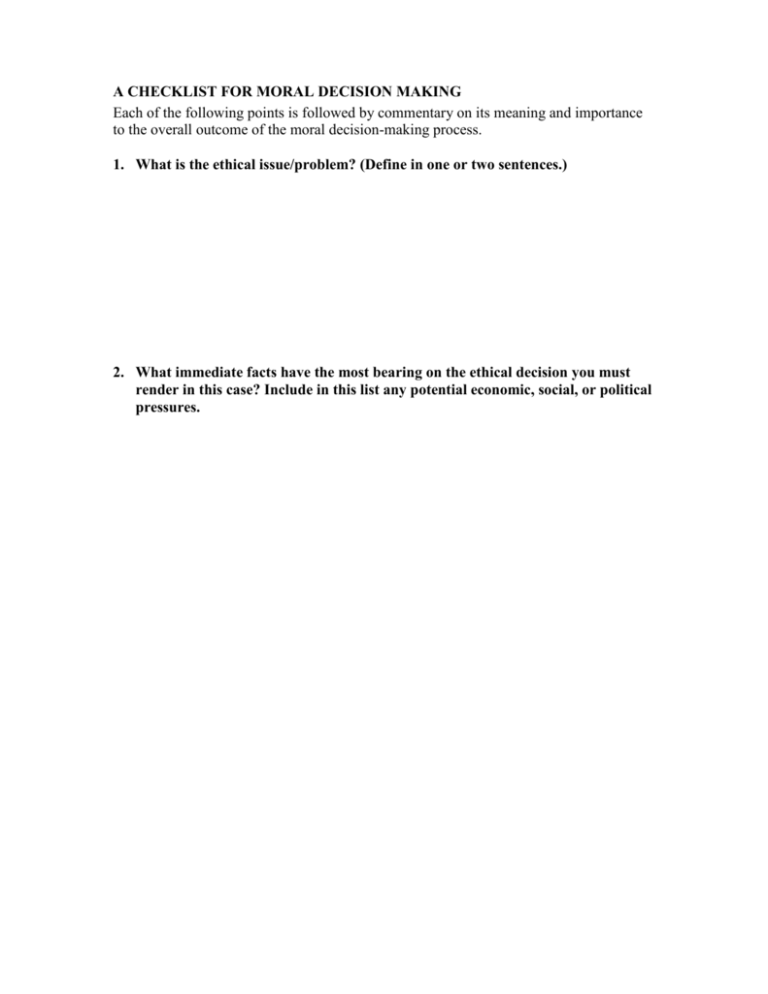
A CHECKLIST FOR MORAL DECISION MAKING Each of the following points is followed by commentary on its meaning and importance to the overall outcome of the moral decision-making process. 1. What is the ethical issue/problem? (Define in one or two sentences.) 2. What immediate facts have the most bearing on the ethical decision you must render in this case? Include in this list any potential economic, social, or political pressures. 3. Who are the claimants in this issue and in what way are you obligated to each of them? (List all affected by your decision.) Define your claimants based on the following obligations: a promise/contract you made (implied or express)? (Fidelity) a wrong you committed that you now have to make up? (Reparation) gratitude for something one of the claimants did for you? (Gratitude) the merit of the claimants when compared with each other? (Justice) your ability to help someone out who needs and deserves help? (Beneficence) your ability to avoid harming anyone unnecessarily? (Non-injury) 4. List at least 3 alternative courses of action. For each alternative, ask the following questions: What are the best- and worse-case scenarios if you choose this alternative? Best case: Worst case: Will anyone be harmed if this alternative is chosen, and how will they be harmed? Would honoring any ideal/value (personal, professional, religious, or other) invalidate the chosen alternative or call it into question? Are there any rules or principles (legal, professional, organizational, or other) that automatically invalidate this alternative? 5. Consider the following ethical guidelines and ask yourself whether they either support or reject any of your alternatives. Guidelines based on consequences: Weighing benefits and harms Is the “good” brought about by your action outweighed by the potential harm that might be done to anyone? Is any of the harm brought about by anyone other than the moral agent? Will anyone be harmed who could be said to be defenseless? To what degree is your choice of alternatives based on your own or your organization’s best interests? Which of the alternatives will generate the greatest benefit (or the least amount of harm) for the greatest number of people? Guidelines based on the action itself: Honoring integrity Are you willing to make your decision a rule or policy that you and others in your situation can follow in similar situations in the future? Does the alternative show a basic respect for the integrity and dignity of those affected by your actions? Have you or will you be using any person as a means to an end without consideration for his/her basic integrity? Is the intent of this action free from vested interested interest or ulterior motive? Does this action promote the development of character within myself and my community? Does this alternative recognize the interrelationships of the parties involved? Does it help anyone by recognizing legitimate needs? 6. Determine a course of action based on your analysis. 7. Defend your decision in the form of a letter addressed to your most adamant detractor.



